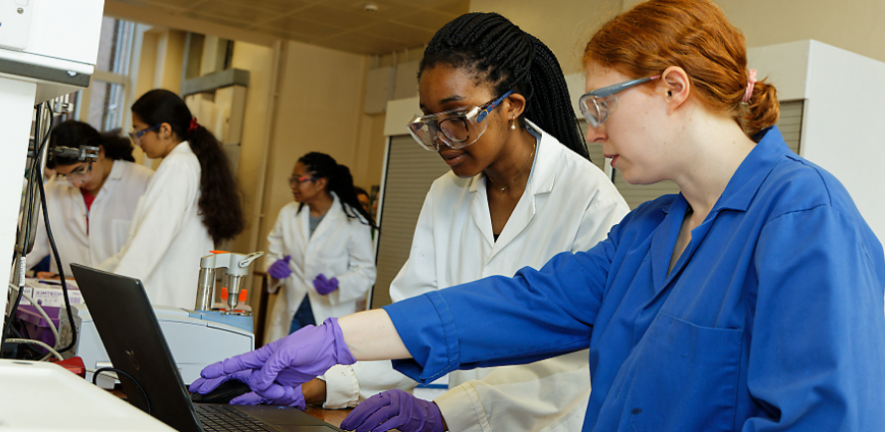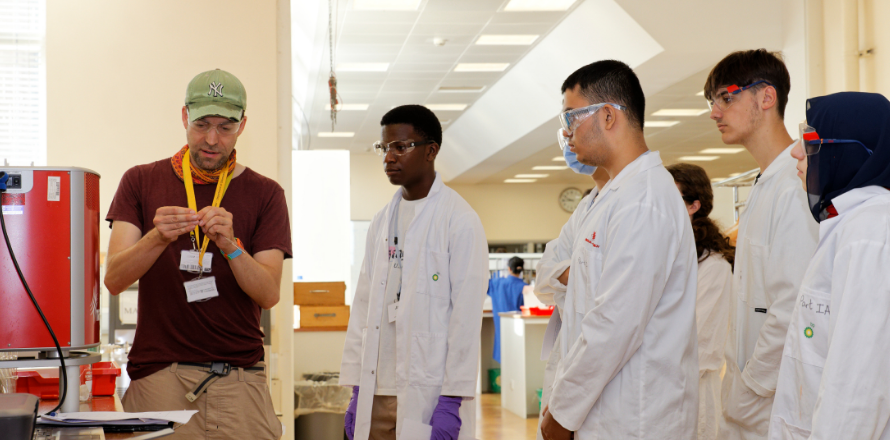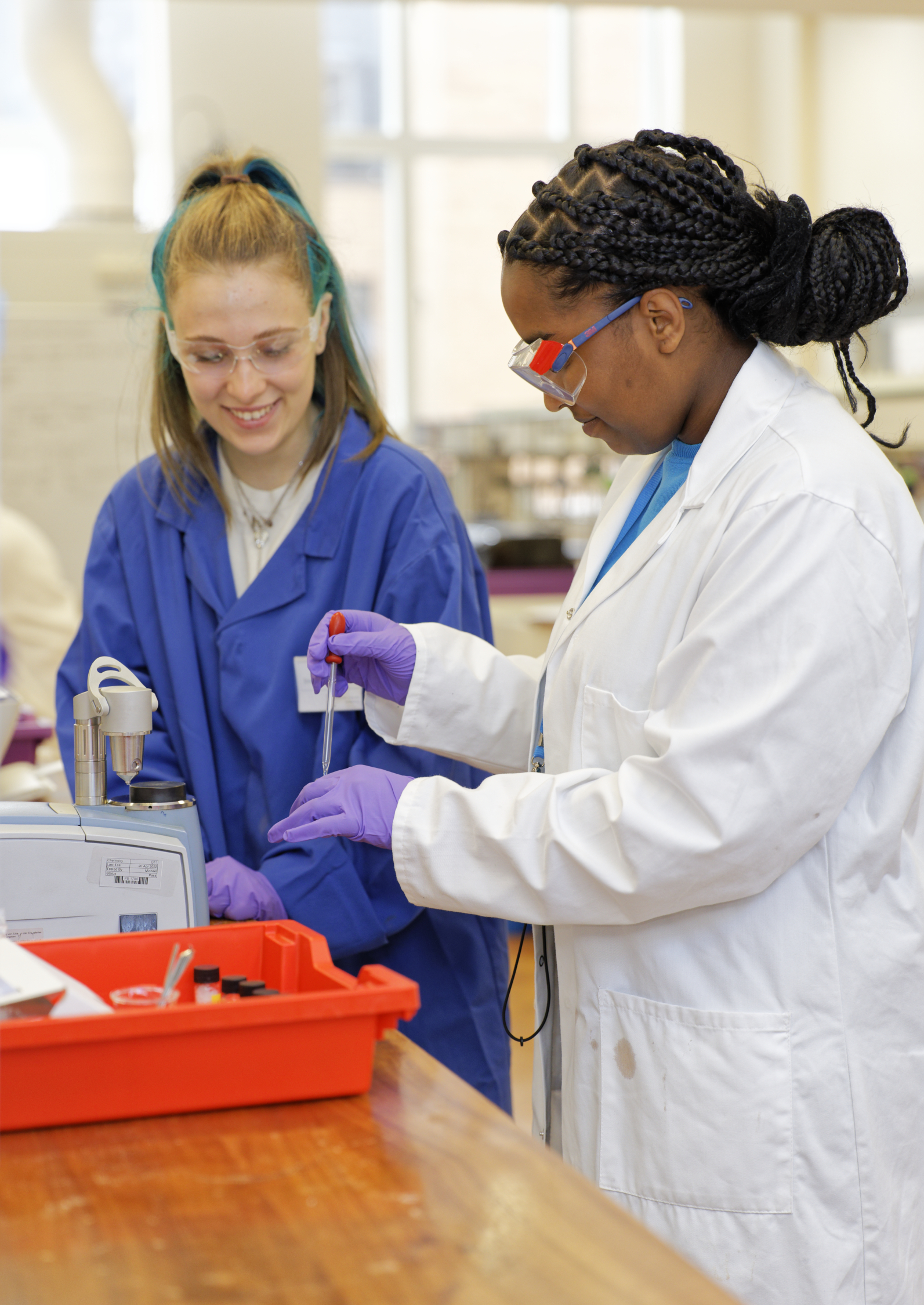
“The great thing about Cambridge is that wonderful students beat a path to our door. But there are lots of fantastic students who either don’t know about us or think we wouldn’t be interested in them – we want to find them and encourage them to apply here,” says Head of Department Professor James Keeler.
Recruiting postgrads from ‘outside the bubble’

The department has been working with the University to encourage students from traditionally underrepresented backgrounds to apply for postgraduate research programmes here.
Professor Deborah Longbottom, Director of Education for the School of Physical Sciences and Head of Postgraduate Education here, says: “It is important that everyone who has the capability to thrive at Cambridge should be given a chance, and we have been working hard to make sure this can happen.”
Contextual Admissions Scheme
Most potential postgrads are evaluated solely by their academic achievement. This scheme aims to overcome this inherent bias by adding context to applications such as caring responsibilities, being the first generation to go to university or bereavement during exams.
Postgraduate Student Coordinator Tessa Blackman, who manages postgraduate applications in Chemistry, says: “Using the contextual admissions form helps eliminate in-built disadvantages, because it allows us to tease out key information from a student’s application which is more reflective of their potential.”
Potential Undermatcher Flag (PUF)
The PUF helps find UK applicants who meet widening participation criteria and have not previously studied at Oxford or Cambridge.
It highlights applicants who belong to groups that are particularly underrepresented in postgraduate study, such as those who have been in care, were eligible for free school meals or had caring responsibilities.

Close the gap
Close the Gap is aimed specifically at increasing the representation of British Black, Bangladeshi and Pakistani students in postgraduate research at Oxford and Cambridge and to halve the current offer gap in the pilot sites by the end of 2025. They also run a free, online programme called AIM PhD, which provides mentoring to those applying for a PhD in Chemistry.
Project coordinator Tanne Heathershaw says: “Widening participation is about the elements of fairness and justice in admissions, which means that reasons out of your control shouldn’t affect your opportunity to be studying at Cambridge or Oxford.”
This article first appeared in Chem@Cam magazine Spring 2024 Issue 68 pg 26.

